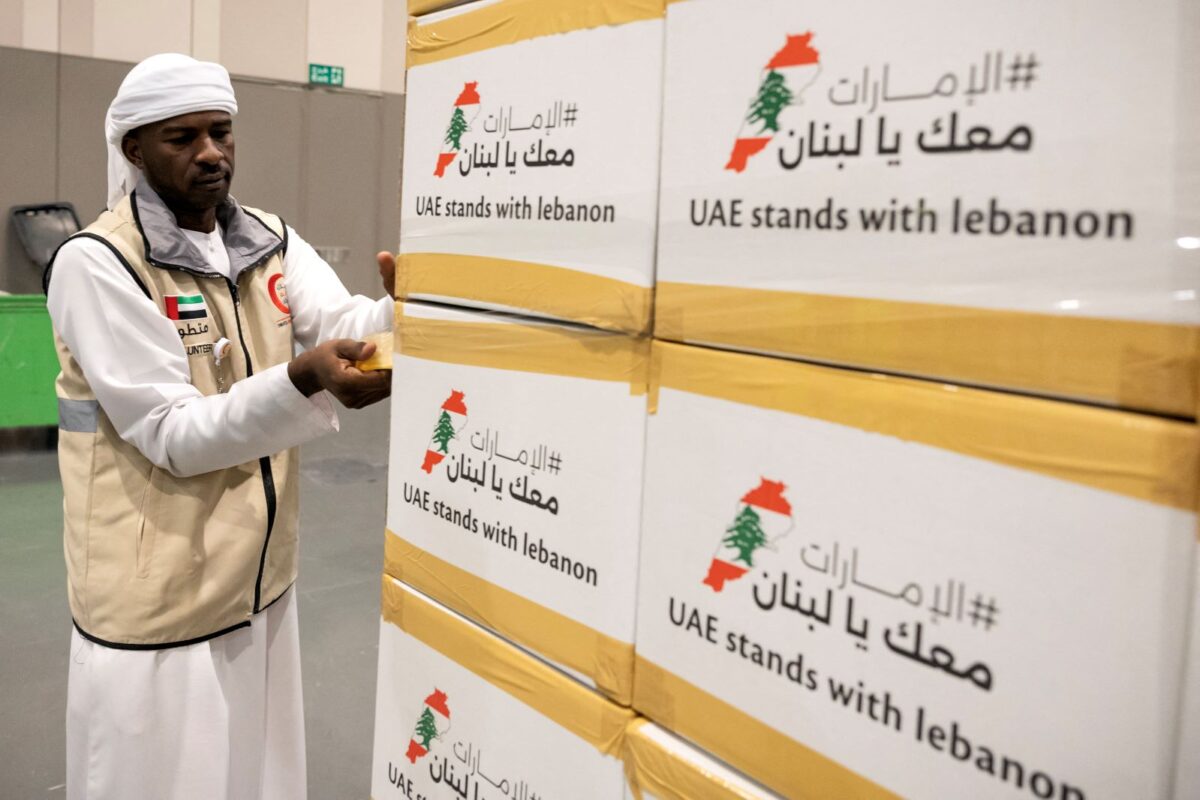
In a notable gesture signaling improving bilateral ties, the United Arab Emirates lifted its travel advisory last week, allowing Emirati citizens to once again visit Lebanon. This move highlights a broader readiness within the Gulf to re-establish connections with Beirut.
The leaders agreed to allow travel for their citizens after implementing the necessary measures to facilitate movement between the two countries and establishing appropriate mechanisms for this purpose.
The United Arab Emirates and Lebanon announced that they had held talks to review bilateral relations and explore ways to strengthen cooperation across various sectors.
UAE President Sheikh Mohammed bin Zayed Al Nahyan expressed hope that Lebanese President Michel Aoun’s visit would help deepen the “brotherly” ties between the two nations, advancing their shared interests and aspirations for progress and prosperity.
He also reaffirmed the UAE’s commitment to working together with Lebanon to promote growth and stability, and stressed the country’s support for Lebanon’s sovereignty, security, and stability.
The two sides discussed ways to enhance economic and investment cooperation by leveraging available opportunities and exchanging expertise.
As part of these efforts, the UAE’s Ministry of Cabinet Affairs’ Knowledge Exchange Office will visit Beirut to share the UAE’s successful experiences in improving government performance and institutional excellence, with the goal of strengthening both public and private sectors in the two countries.
Sheikh Mohammed reaffirmed Lebanon’s strategic importance within the Arab world, describing the country as “a cornerstone of joint Arab action.”
Growing tensions
The relationship between Lebanon and the Gulf Cooperation Council (GCC) states especially Saudi Arabia, the United Arab Emirates, Kuwait and Qatar has experienced significant strain in recent years, largely due to political tensions, Lebanon’s internal instability, and Hezbollah’s influence in Lebanese politics.
However, since the beginning of 2025, there have been clear signs of rapprochement and rebuilding of trust, marked by diplomatic overtures and high-level visits.
Ties between Lebanon and the Gulf weakened notably around 2021–2022, when comments by a Lebanese minister criticizing the Saudi-led intervention in Yemen sparked a diplomatic rift.
Gulf countries, particularly Saudi Arabia and the UAE, responded with withdrawals of ambassadors, restrictions on trade and aid, and, notably, travel bans on their citizens visiting Lebanon, citing security concerns and political instability.
These actions hit Lebanon hard, as Gulf states have historically been key sources of financial support and investment, remittances from Lebanese expatriates, Tourism, especially from high-spending Gulf nationals.
“President Joseph Aoun’s administration has taken deliberate steps to mend and strengthen Lebanon’s ties with the Gulf states. Since taking office, Aoun has adopted a more balanced and diplomatic stance on regional issues, reaffirming Lebanon’s Arab identity while working to insulate state institutions from external power struggles,” explained Rawad Al Hout, a Political Economy Lecturer specializing in Levant-Gulf economic relations at a university in Qatar, in comments to NOW.
President Aoun’s efforts appear focused on repositioning Lebanon as a constructive player within the Arab world, detaching from polarizing regional alignments, and restoring the country’s image as a stable, welcoming destination for Gulf investors and travelers.
The improving ties with the Gulf also carry broader implications for financial aid, reconstruction efforts, and regional diplomacy, especially as Lebanon continues its long journey toward political stability and economic recovery.
For decades, Lebanon maintained strong ties with the Gulf states particularly Saudi Arabia, the United Arab Emirates, Qatar, and Kuwait which played a vital role in the country’s recovery and development.
Their financial aid and direct investments were instrumental in Lebanon’s post-civil war reconstruction and in stabilizing the economy after the 2006 conflict with Israel. Gulf funding also served as a backbone for Lebanon’s banking sector and public infrastructure.
But in recent years, that longstanding support began to unravel. As Hezbollah’s political and military influence grew and Iran’s footprint in Lebanese affairs widened, concerns mounted in Gulf capitals.
“For decades, the Gulf states particularly Saudi Arabia, the UAE, Qatar, and Kuwait were pillars of financial and political support for Lebanon,” said Dr. Riwa Tannous, a regional affairs expert specializing in Arab economic relations.
“Their aid and investments were essential in helping Lebanon rebuild after the civil war and the 2006 war with Israel, not to mention propping up the economy and sustaining the banking sector.” She explained to NOW.
According to Dr Riwa that dynamic began to shift with Hezbollah’s growing dominance in Lebanese politics, coupled with Iran’s expanding influence and the government’s failure to implement critical reforms which led to Gulf countries to reassess their engagement.
“What we’ve seen in recent years is a clear strategic withdrawal less aid, reduced diplomatic presence, and travel advisories all signaling deep frustration with the direction Lebanon was heading.” Said Dr Riwa.
A new chapter for Lebanese-Gulf relations?
President Michel Aoun and Prime Minister Najib Mikati have committed to a comprehensive disarmament of non-state actors, reaffirming the Lebanese state’s exclusive authority over weapons and pledging to advance long-overdue structural reforms.
These steps have been positively received by Gulf states, which view them as essential requirements for re-engagement.
The United Arab Emirates has lifted its travel ban on Lebanon, which was imposed on its citizens in 2021.
This announcement came in a joint statement following a meeting in Abu Dhabi between UAE President Sheikh Mohammed bin Zayed Al Nahyan and Lebanese President Michel Aoun.
Further reinforcing this trend, Kuwait recently announced its intention to ease the repatriation of its citizens to Lebanon, formalizing what has, until now, been discreet and informal travel.
Observers suggest that Saudi Arabia, which has largely distanced itself from Lebanon in recent years, may soon take similar steps, marking a potential shift in regional diplomacy toward renewed engagement.
Rodayna Raydan is a Lebanese-British journalist. You can follow her on Twitter @Rodayna_462
The views in this story reflect those of the author alone and do not necessarily reflect the beliefs of NOW.








